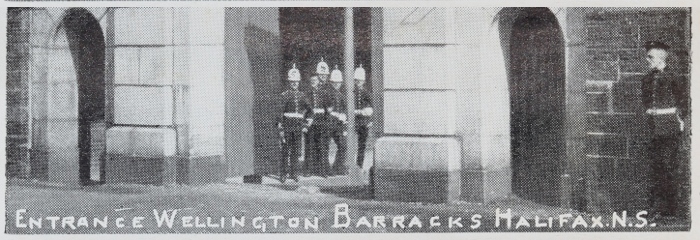Topic: Canadian Militia

Colonel Sam Hughes and the Permanent Force
(Part 3)
And then, going over to the attack …
Reinforcing his own alternative explanation for the reaction to his remarks in Halifax, Hughes turns to the attack. He removes one officer and the question of rumours of mass resignations has to be addressed.
Col. Hughes Takes Summary Action
Medical Officer of Halifax Garrison Removed from Militia List
Custom of British Navy
Searching Enquiry to be Instituted by Minister of Militia Into habits of the Officers
The Montreal Gazette, 21 July, 1913
(Special to the Gazette.)
Ottawa, July 20.—The name of Lieut.-Col. Curry, medical officer of the Halifax Garrison, has been removed from the militia list as a result of the unpleasant incident at the military dinner in that town. This action was taken immediately after the return of the Minister of Militia from Halifax.
There has been some disposition to question the minister's power to take summary action of this nature. The minister bases his action upon paragraph 235 of the King's Regulations and Orders, Canada. This paragraph is: "An officer may at any time be removed by order of the Minister of Militia for misconduct."
It develops that the inquiry which Col. Hughes ordered into the conditions of the Halifax Garrison will have a very wide scope. It will have reference to the habits of officers in the matter of indulgence in liquor, and if mess bills show that the amount of strong drink consumed is such to interfere with an officer's capacity for work and leadership he may expect to hear from his superiors on the subject.
It is believed that the minister is somewhat influenced by the precedent afforded by the custom followed in the British Navy, whereby officers on board ship are required to observe the utmost care, excess consumption of stimulants in itself being regarded as dangerous to the service and therefore an offence.
It is well known to Canadian officers who have seen service of late with Imperial troops that there is little drinking in the messes of efficient regiments. This is an oversight of officers' personal habits which is not attempted in any civil employment but it is pointed out that an officer must in peace keep himself in a condition of bodily fitness which will enable him to bear the fatigues and exertions required on active service and that consequently a standard of abstemiousness may be required of him, which is not exacted of others.
Officers Not to Quit the Service
Official Denial is Given Rumor of Contemplated Resignations in Toronto
The Toronto World, 28 July 1913
The World has received the following letter from Lt.-Col. H.M. Elliot:
Editor World: With reference to the statement contained in The Toronto World, dated July 16, 1913, as follows:
"Toronto's thin red line, represented by the Royal Canadian Dragoons and Royal Canadian Regiment of Infantry at Stanley Barracks, may be still further attenuated as a result of the sweeping indictment of a certain class of permanent officers, made by Col. Sam Hughes at the Halifax banquet.
"It was stated last night that many of the regular officers contemplated resigning their commissions as a protest against the remarks of the minister of militia, and that their example would be followed all over the country."
Gen. Lessard has made full enquiries amongst the officers of the Royal Canadian Dragoons and No. 2 Infantry Station, R.C.R., and desires me to say that your statement is entirely incorrect and without foundation. Be good enough, therefore, to have the statement corrected in the next issue of your paper and to oblige.
H.M. Eliot, Lt.-Col.,
A.A.G., 2nd Division.
